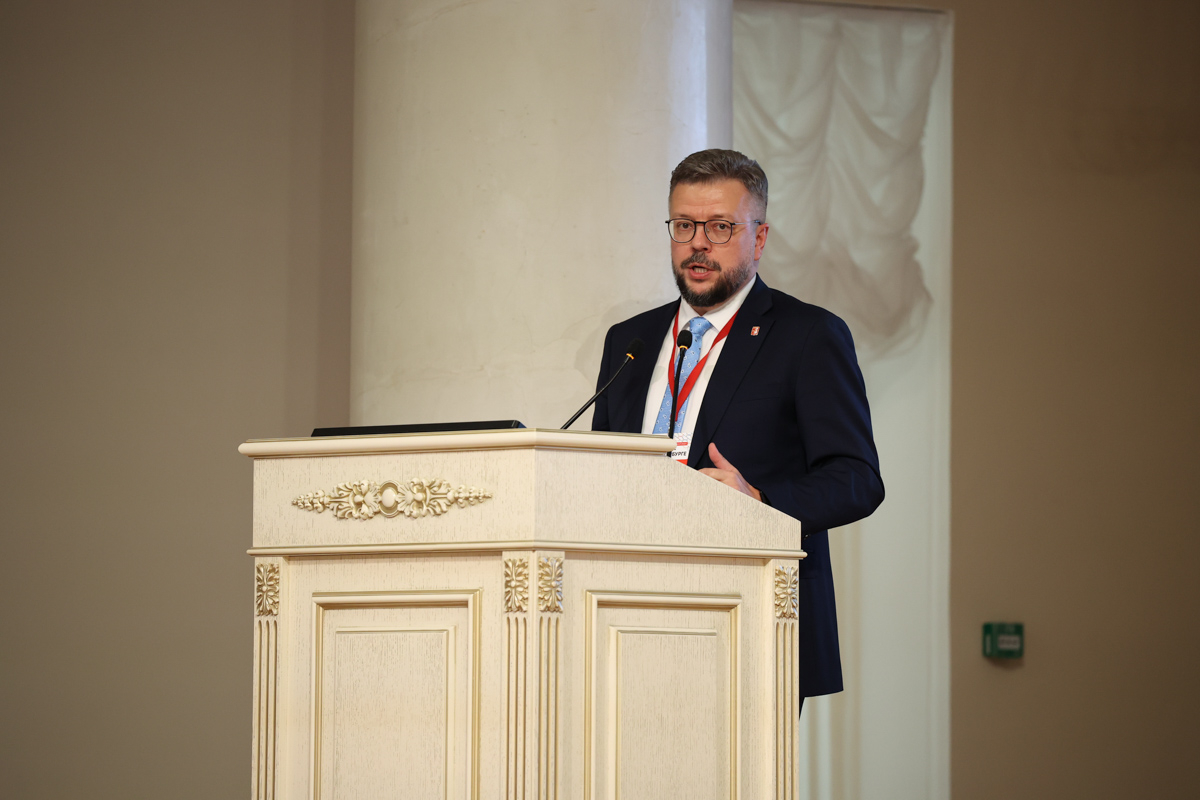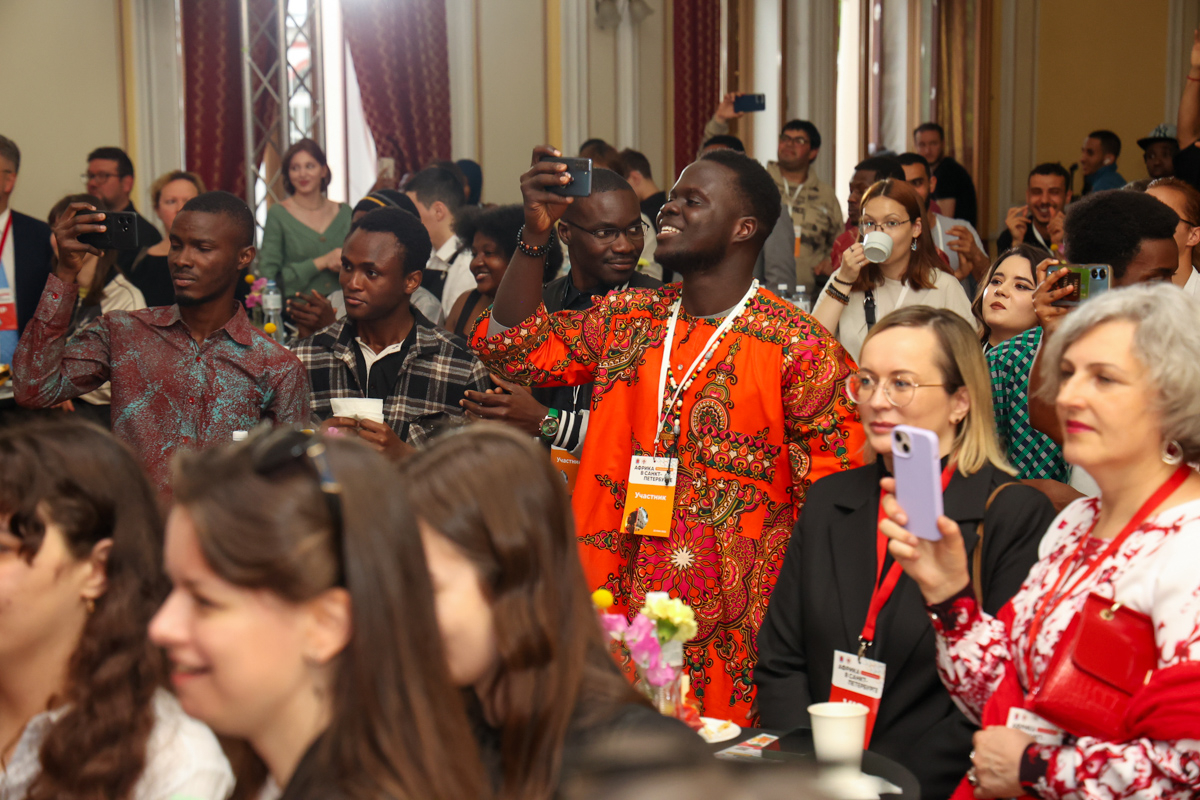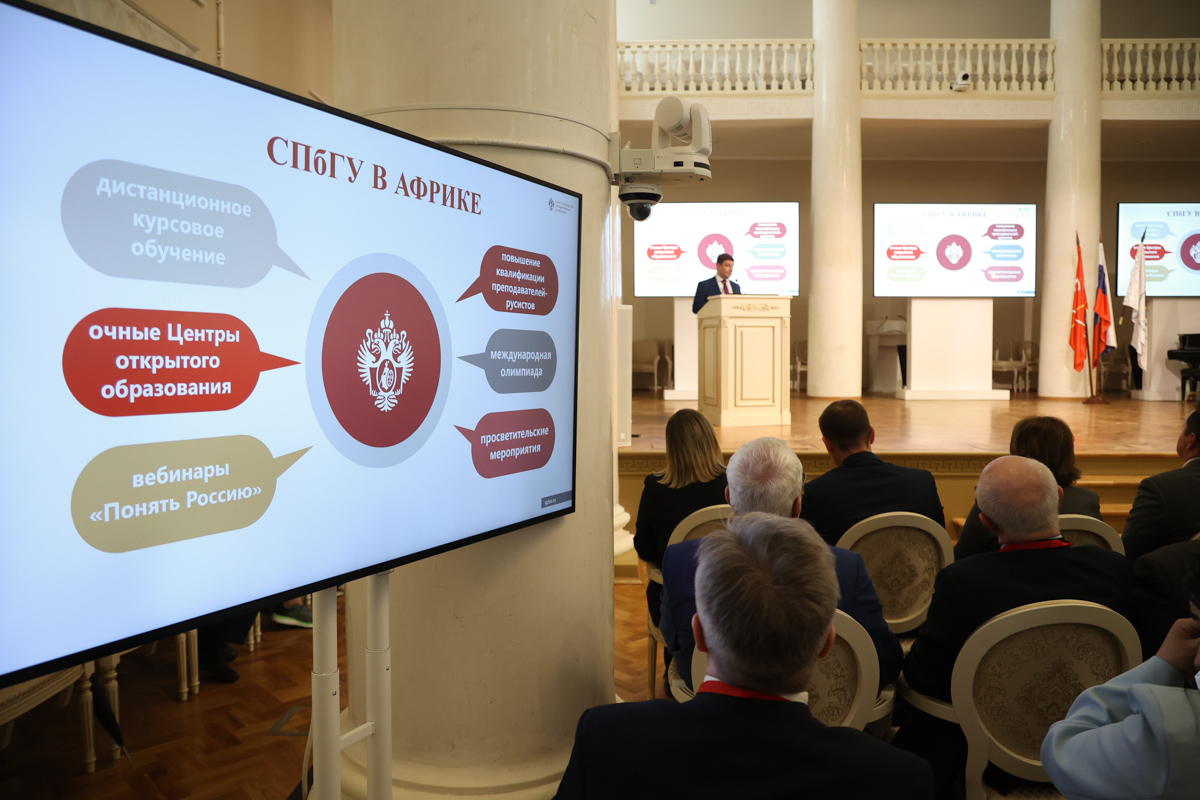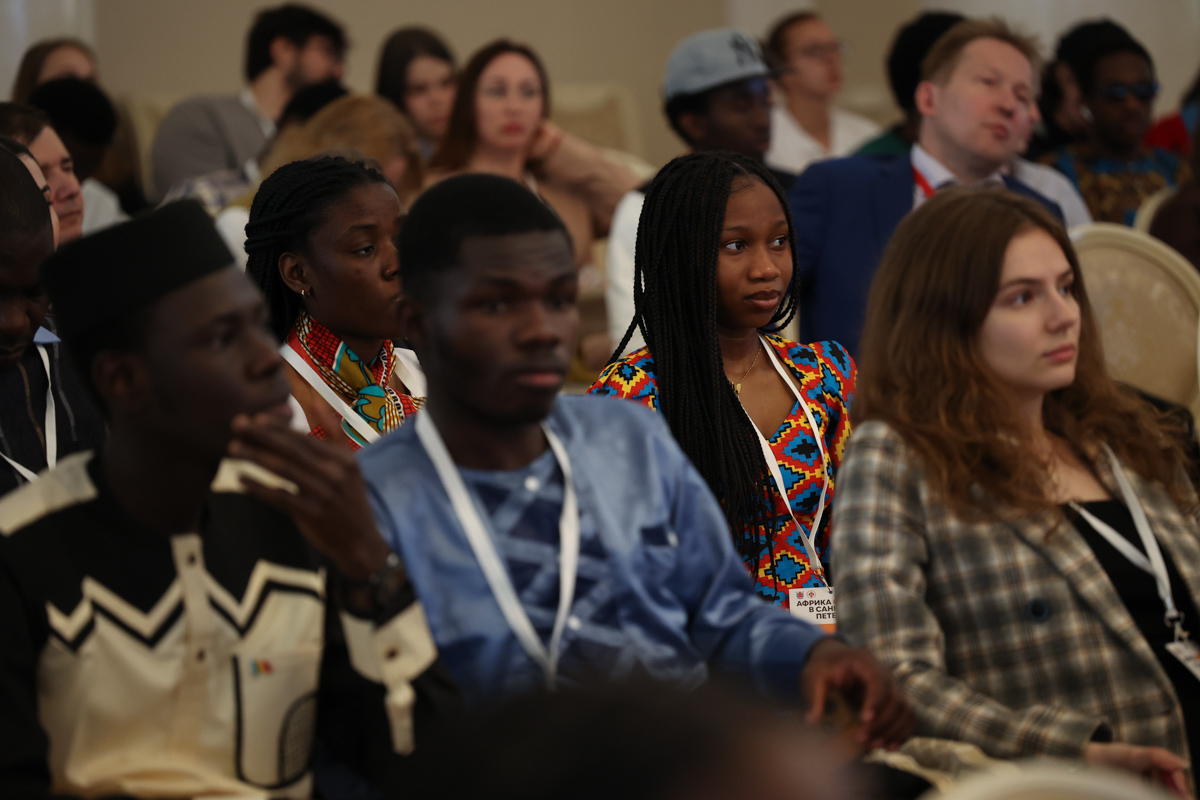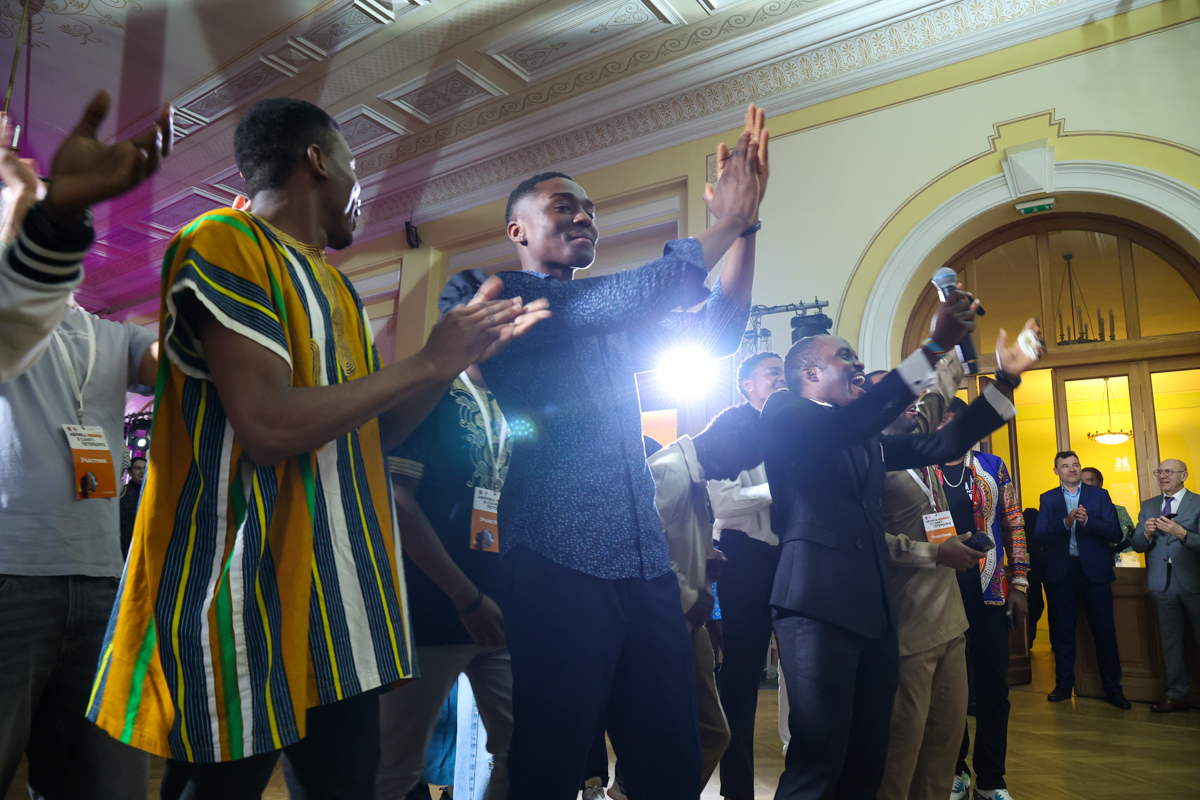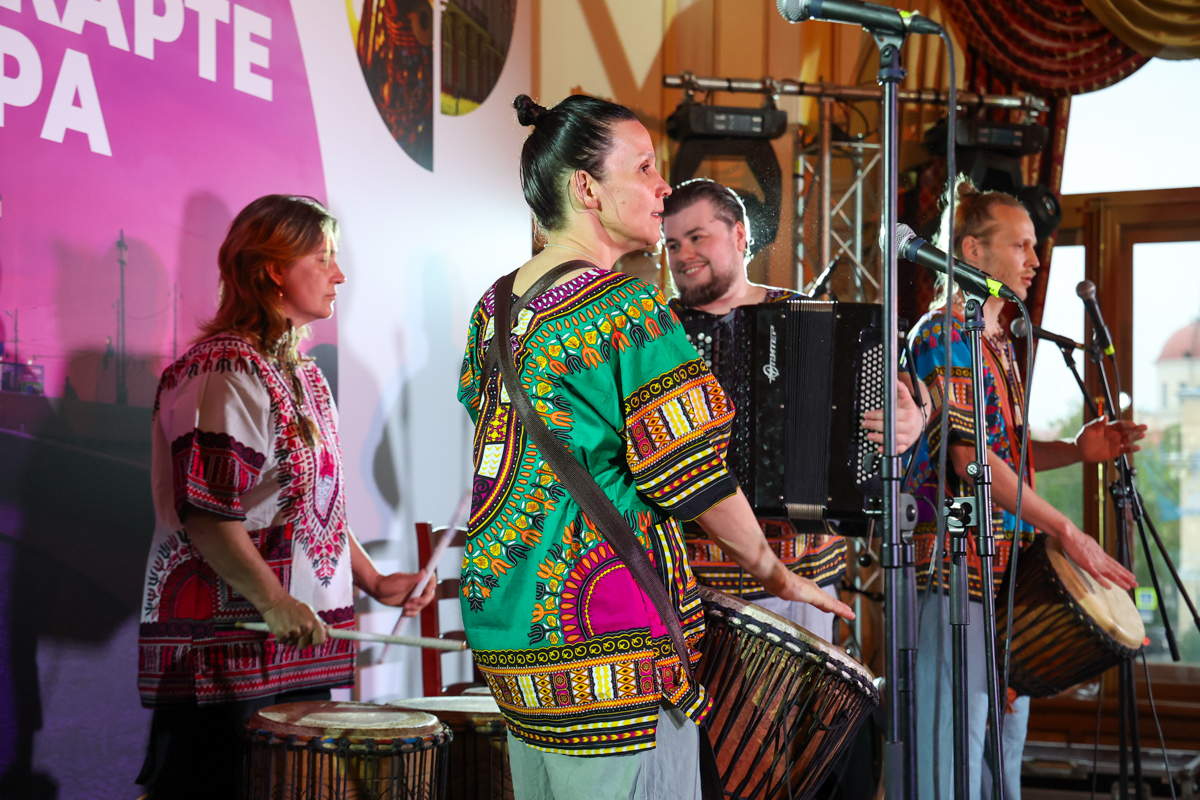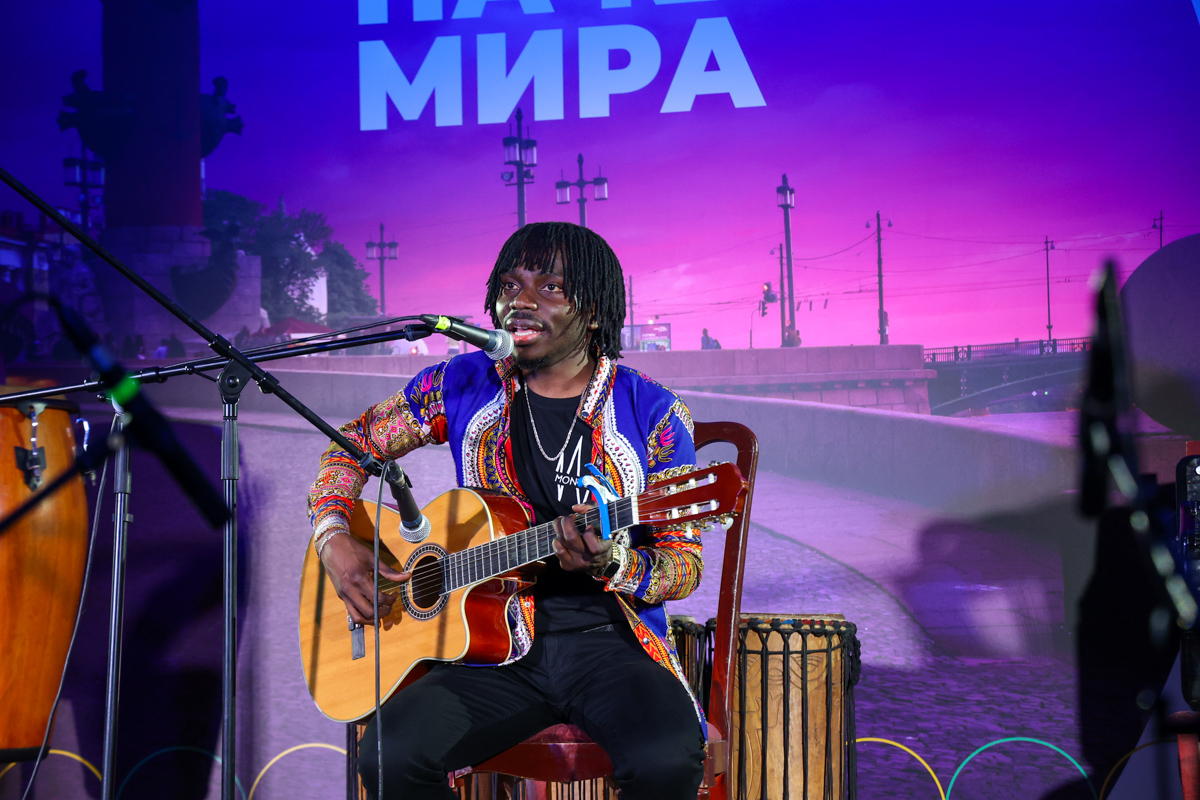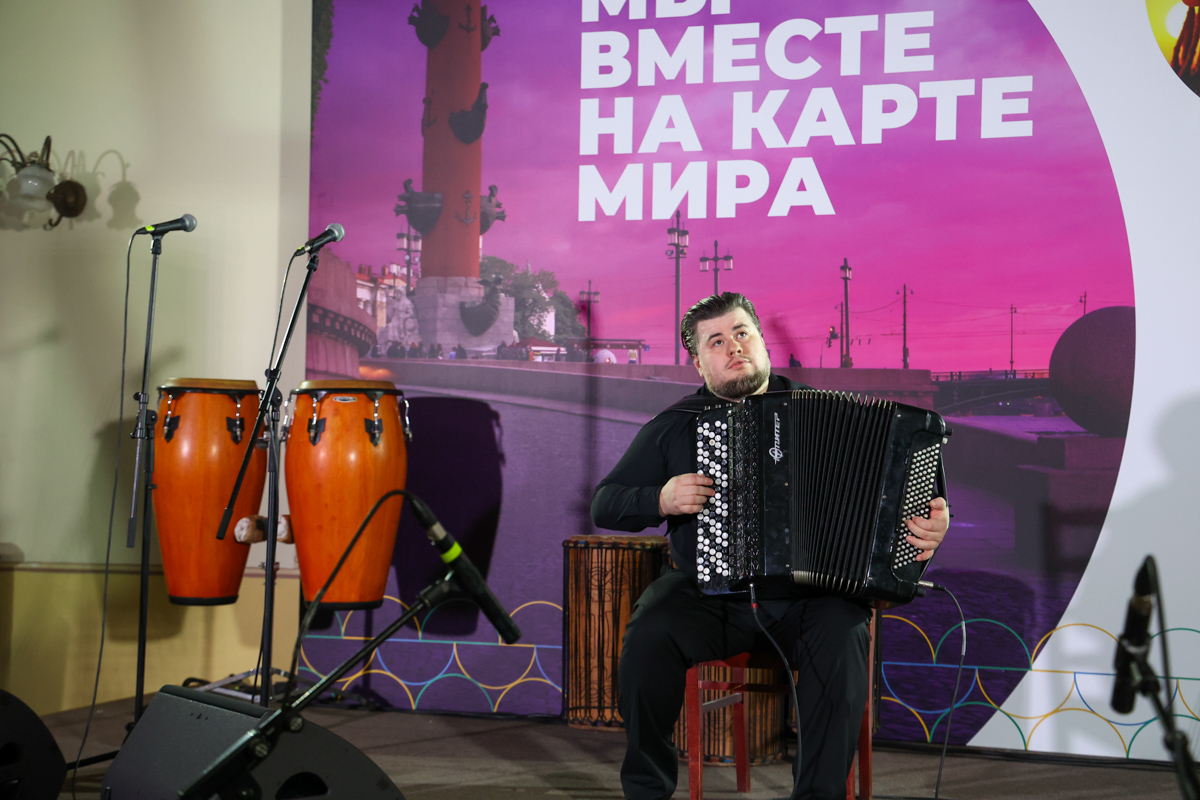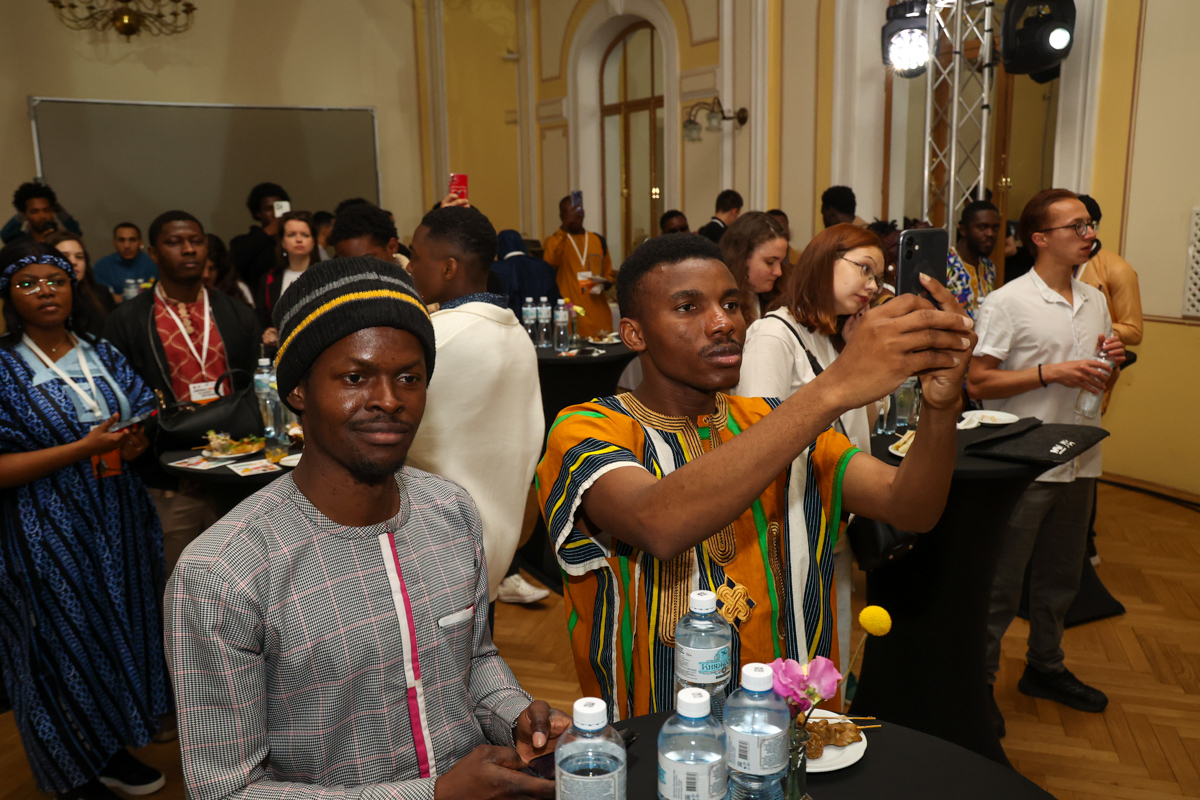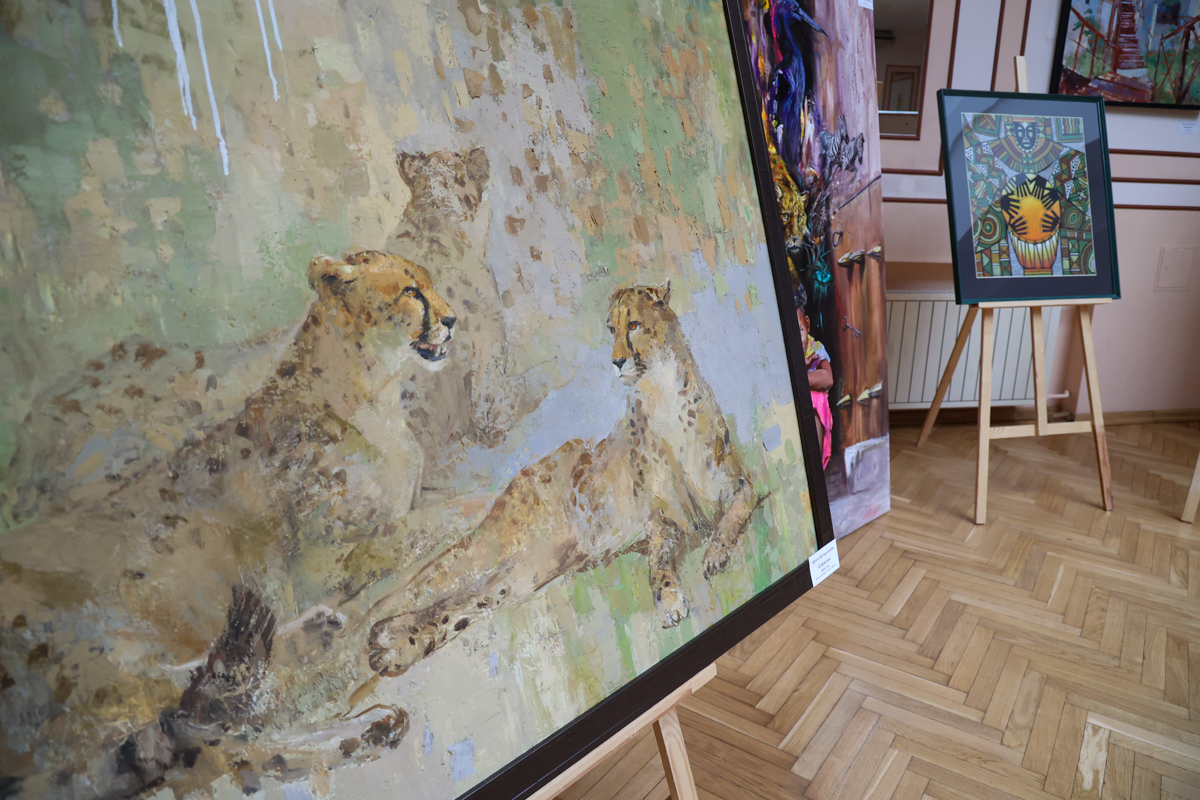St Petersburg University hosts the Africa in St Petersburg Youth Festival
On the eve of Africa Day, St Petersburg University hosted the 3rd International Youth Festival ‘Africa in St Petersburg’. This year’s festival theme was ‘We are together on the map of the world’. The event attracted over 250 attendees, including representatives of the city government, African NGOs, honorary consuls of African countries, and students from St Petersburg universities.
The festival was opened by Vice-Governor Konstantin Zvonik, who delivered a welcoming address on behalf of Alexander Beglov, Governor of St Petersburg and Member of the Board of Trustees of St Petersburg University. In his message Alexander Beglov highlighted that ‘the USSR played a significant role in the liberation of African countries from colonial rule. Both then and now, our Fatherland strives for a just world order and the protection of human values. Russian President Vladimir Putin has emphasised that the African continent is becoming a new centre of power, with its global importance growing exponentially.’
Regarding Russia-Africa research and educational cooperation, Konstantin Zvonik noted that the number of students from African countries in St Petersburg is increasing every year and has nearly reached 3,000. ‘It is no coincidence that we hold this forum at St Petersburg University, which leads in the number of students from African nations, with 685 undergraduate, graduate, and postgraduates students,’ said Konstantin Zvonik. ‘As early as in the 19th century, Ethiopian studies and Egyptology were introduced at St Petersburg University as new study areas. Then, in the 1934-1935 academic year, the University began teaching African languages such as Swahili, Hausa, and Amharic, along with other disciplines related to African studies. The first cohort of professional Africanists graduated in 1939.’
St Petersburg unites active young people from different countries who value equality and mutual respect for cultures. These people are committed to developing practical solutions together and addressing new global challenges.
Konstantin Zvonik, Vice-Governor of St Petersburg
Anastasia Yarmosh, Senior Vice-Rector for Strategic Development and Partnership at St Petersburg University, said that the University has upheld a centuries-old tradition of African studies. These longstanding efforts formed the basis for our friendly relations with African nations today. The ties established by the academic staff of Leningrad State University during their support for the independence movements in African states are of particular significance. Recently, St Petersburg University welcomed Mr Jean-Claude Gakosso, Minister of Foreign Affairs of the Republic of the Congo, who paid an official visit to St Petersburg University. Mr Gakosso is an alumnus of the Faculty of Journalism at Leningrad State University. Another graduate, Mr Bouréma Kansaye, Minister of Higher Education and Scientific Research of the Republic of Mali, visited the University to sign a cooperation agreement with his alma mater.
Anastasia Yarmosh noted, ‘Our work extends beyond St Petersburg. The branch of St Petersburg University in Cairo specialises in training professionals in medicine and healthcare. Starting in 2025, we plan to admit students to academic programmes focused on the use of AI in medicine, as well as programmes in physiotherapy, physical education, and health promotion. Additionally, numerous Russian language centres across Africa help to spread our values and best practices worldwide.’
Sergey Andryushin, Vice-Rector for International Affairs at St Petersburg University, emphasised that the University’s school of African Studies helps to build cultural bridges and train specialists who understand the nuances of working in African countries and can effectively implement international projects. St Petersburg University produces a variety of textbooks and teaching aids and initiates projects to promote the Russian language abroad. These efforts attract students and provide young people with opportunities for successful employment after graduation. Sergey Andryushin also highlighted that the quality of education at St Petersburg University is globally recognised. Graduates from its academic programmes and Russian language courses are in high demand at both Russian and international companies.
‘St Petersburg University organises international competitions in Russian as a foreign language, offers advanced training courses for Russian language teachers, and conducts webinars and educational events in several African languages. The time-honoured traditions of the school of African Studies at St Petersburg University help to make these projects engaging. Participants in these initiatives can see the mutual openness and interest between Russia and Africa. More and more Russian students are enrolling in academic programmes that focus on studying Africa from perspectives of different fields of studies, including: economics; cultural studies; management; medicine; and others,’ said Sergey Andryushin.
Founded in 1939, the Department of Egyptology and African Studies, renamed the Department of African Studies in 1953, was the first specialised department of African Studies in Russia. Currently, St Petersburg University offers major specialisations in Amharic, Bamana, Swahili, and Hausa, with additional specialisations available in Ge’ez, Maninka, and Kinyarwanda.
The festival participants were also addressed by: Anatoly Loshakov, Advisor to the Representative Office of the Ministry of Foreign Affairs of the Russian Federation in St Petersburg; Viktor Budny, Honorary Consul of the Republic of Angola in St Petersburg; Andrei Malkov, Deputy of the St Petersburg Legislative Assembly and Chairman of the Standing Committee on Youth Policy, Public Associations and Digitalisation; Yuri Snisarenko, Director of the St Petersburg Science Foundation; and Maxim Zalyvsky, Head of the Project Office of the Russian-African Network University.
Oksana Shubina, Head of the Department of Mass Events and Development of Volunteering at the Committee for Youth Policy and Interaction with Public Organisations of St Petersburg, spoke about the events planned for this year. These events aim to help international students adapt to life in St Petersburg and learn about Russian culture. Ms Besma Ben Fraj, leader of the International Friendship Club in St Petersburg, introduced her organisation, which brings together active young people from different countries.
In 2023, St Petersburg University took part in the Russia — Africa Economic and Humanitarian Forum.
The official programme also included a festival of African cultures, showcasing traditional music and applied arts. Guests had the opportunity to visit the exhibition ‘Dreams of Africa’, which featured works by artists from various countries, inspired by the culture and nature of the African continent. This exhibition was organised by the ArtMuza Museum of Contemporary Art, with support from the Committee for External Relations of St Petersburg and the House of Africa Northwest. During the exhibition’s preview in December 2024, St Petersburg University signed an agreement with the Embassy of the United Republic of Tanzania in the Russian Federation and the company OOO Thermex Corporation. This agreement aims at training specialists to foster economic cooperation between our two countries.
The concert programme featured a variety of performances, including African melodies, folk songs, and popular songs by performers from the Democratic Republic of the Congo, Zimbabwe, Cameroon, Madagascar, and Russia. The audience enjoyed unique renditions of the popular Russian song ‘Oi, tsvetet kalina’ (‘Oh, guelder-rose is blooming’) performed in Hausa, and the ‘Song of Friends’ from the Soviet animated film ‘The Bremen Town Musicians’ sung in Swahili. Additionally, they listened to ‘Ubuntu’, a song celebrating Russian-African unity, performed in both Russian and Malagasy.



